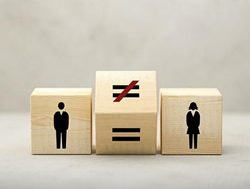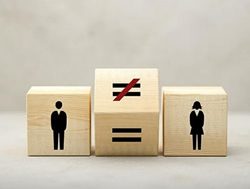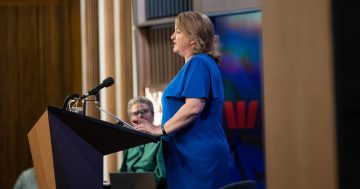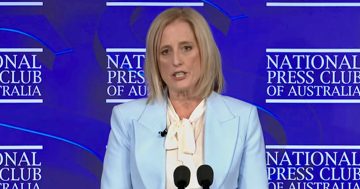Angela Priestley* says Australia’s gender pay gap has widened to 14.2 per cent.
 In further proof progress made on gender equality outcomes can quickly disappear, Australia’s national gender pay gap has widened, up 0.8 per centage points to 14.2 per cent.
In further proof progress made on gender equality outcomes can quickly disappear, Australia’s national gender pay gap has widened, up 0.8 per centage points to 14.2 per cent.
That means women working full-time are now taking home $265.50 a week less than their male counterparts.
The figure was released Thursday [19 August] afternoon by the Workplace Gender Equality Agency (WGEA), revealing the change that has occurred over the past six months on comparing men and women working full-time.
They also announced that ‘Equal Pay Day 2021’ will fall on August 31 this year, marking the 61 extra days women have to work from the end of the financial year to achieve the same annual pay as men.
The difference was driven by a rise in men’s full-time wages that far outpaced a rise in women’s wages, 1.8 per cent compared with 0.9 per cent, with the ABS particularly highlighting earnings growth in construction — an industry that received considerable pandemic stimulus from the Federal Government — as largely supporting this growth.
And the rise in this gap is a long way from Treasurer Josh Frydenberg declaring that the gender pay gap had “closed”.
His government had solved it! Granted, that was during a very different time way back in 2019.
But even then the gender pay gap stood at 14 per cent. It managed to dip slightly further six months ago, before shooting back up again to this point.
Josh Frydenberg is yet to comment on this latest gender pay gap rise, nor has anyone in the Coalition Government yet acknowledged it including Minister for Women Marise Paye.
“Our data shows women’s average full-time wages are lower than men’s across every industry and occupation in Australia,” said WGEA director Mary Wooldridge.
She added that on current trends, according to their 2021 BCEC-WGEA research, we’re still another 26 years from closing the total remuneration gender pay gap.
Wooldridge wants to see all industries and workplaces asking about their pay gaps this Equal Pay Day, noting it is an “ideal opportunity to remind employers around the country that one of the key levers of change is through gender pay audits.”
Such pay audits, she said, will help employers address and identify discriminatory pay practices.
“Research proves that regular audits close pay gaps faster.
“The 2021 Gender Equity Insights Report from BCEC and WGEA showed that employers who consistently did pay audits between 2015-20 closed their managerial pay gaps faster than all other companies.
“By contrast, those who stopped doing pay audits actually saw their managerial pay gaps increase.”
WGEA says that on average, women working full-time earned $1,575.50 while men working full-time earned $1,837.00, a weekly gap of $261.50 or $13,598 over a full year.
*Angela Priestley is the Founding Editor of Women’s Agenda, and now heads up the publication’s parent company Agenda Media.
This article first appeared at womensagenda.com.au.











